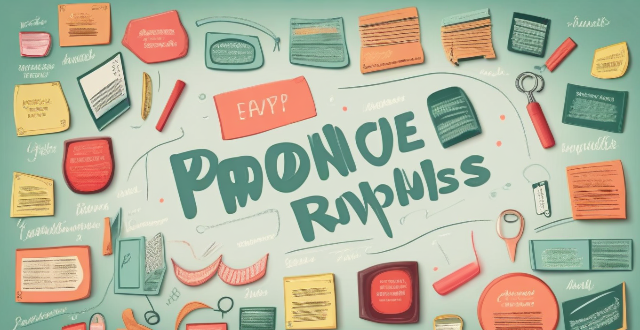Shopping Budget

How can I make the most out of my shopping budget during the discount season ?
Maximizing Your Shopping Budget During Discount Season During discount seasons, it's essential to make the most out of your shopping budget. Here are some tips to help you do just that: 1. Make a list of items you need or want to purchase. This will help you stay focused and avoid impulse buying. Prioritize your list based on necessity and preference and set a specific budget for each item. 2. Do research beforehand to find out which stores will be offering discounts and what those discounts might be. This will help you plan your shopping route efficiently. Check online and compare prices across different retailers to ensure you're getting the best deal possible. 3. Look for coupons and promo codes before making any purchase. Sign up for email lists and check retailer websites regularly for updates on current promotions and coupons. 4. Consider buying items in bulk during discount seasons if you use them frequently. Non-perishable items like toilet paper, cleaning supplies, and canned goods are good candidates for bulk buying. If an item is too expensive to buy in bulk by yourself, consider splitting the cost with friends or family members. 5. Avoid impulse buying by sticking to your list and giving yourself time to think about purchases before deciding. Use the 24-hour rule if you're unsure about a purchase.

What are some effective ways to save money while shopping ?
Shopping can be enjoyable but also strain budgets. Effective ways to save money include making a shopping list, using coupons and promo codes, buying in bulk for non-perishable items, taking advantage of seasonal sales, comparing prices, and avoiding impulse buys. Planning ahead and setting a budget can help stick to necessary purchases and avoid overspending.

How do I identify the best online shopping sites for budget buys ?
How to identify the best online shopping sites for budget buys? 1. Research and compare prices using price comparison websites like CamelCamelCamel, Google Shopping, and PriceGrabber. 2. Check for coupons and promo codes on coupon websites such as RetailMeNot, Honey, and Rakuten before making a purchase. 3. Look for sales and discounts offered by online shopping sites during seasonal events, clearance events, and flash sales. 4. Read reviews and ratings from other customers on review platforms like Amazon, Trustpilot, and Sitejabber to determine the reliability of an online shopping site. 5. Consider shipping costs and return policies when comparing online shopping sites to ensure affordability and convenience in case of returns or exchanges.

How can I save money while shopping during the discount season ?
This article provides practical tips for saving money during the discount season. It suggests making a list of essentials, setting a budget, researching before shopping, using coupons and promo codes, shopping with a friend, considering alternative brands, and being aware of return policies. These strategies can help shoppers avoid overspending and make informed purchasing decisions.

How can I find the best holiday gifts within a specific budget ?
Finding the best holiday gifts within a specific budget can be challenging, but with careful planning and research, it is possible. Set your budget, make a list of people to buy for, research gift ideas, compare prices, consider alternatives to traditional gifts, start early, and use credit card rewards to find great gifts that won't break the bank.

How do I avoid impulse buying and stick to my shopping list ?
The text provides tips on how to avoid impulse buying and stick to a shopping list. It emphasizes the importance of identifying needs, categorizing the list, setting a budget, not shopping when hungry, using cash instead of cards, avoiding window shopping, and practicing self-control. By following these steps, one can make conscious decisions about purchases and avoid overspending and clutter in the home.

What are some tips for saving money while shopping ?
Saving Money While Shopping: Tips for Smarter Spending Shopping can be both enjoyable and costly. To save money while shopping, consider these tips: make a list before shopping, compare prices across different stores and online retailers, use coupons and discounts, buy in bulk (if applicable), avoid impulse purchases, and shop around holidays for sales. By following these strategies, you can stick to your budget, avoid overspending, and get the best deals possible.

What are some tips for creating a budget-friendly shopping list ?
Creating a budget-friendly shopping list requires careful planning, assessment of needs, and comparison of prices. By following tips such as assessing your needs, planning your meals, checking your pantry, comparing prices, using coupons and discounts, prioritizing your items, and sticking to your list, you can save money while ensuring that you have everything you need for your daily routine and upcoming events.

How do I prepare for an upcoming shopping festival ?
Shopping festivals are exciting events that offer great deals and discounts on a wide range of products. To make the most out of these festivals, it's important to prepare in advance. Here are some tips to help you get ready for an upcoming shopping festival: Make a list of items to buy, research deals and discounts, set a budget, create accounts and save payment information, download apps and sign up for loyalty programs, and plan your shopping strategy. By following these steps, you can ensure a successful and enjoyable shopping experience.

What are some tips for shopping on Black Friday ?
Shopping Tips for Black Friday Black Friday is one of the busiest shopping days of the year, with retailers offering deep discounts and promotions to attract customers. Here are some tips for shopping on Black Friday: 1. Research Beforehand: Check out the ads and circulars from your favorite retailers to see what deals they are offering. Make a list of the items you want to buy and compare prices across different stores. 2. Set a Budget: Decide how much you can afford to spend and stick to it. 3. Be Prepared: Make sure you have everything you need before you go shopping, including a shopping list, coupons, gift cards, and a fully charged phone. Dress comfortably and wear shoes that are easy to walk in. 4. Shop Early: If you're planning to shop in-store, try to arrive early. Many retailers open their doors early on Black Friday, and the best deals often go quickly. If you're shopping online, be ready to check out as soon as the sale starts. 5. Use Credit Cards Wisely: Using credit cards can be a good way to earn rewards and protect your purchases, but be careful not to overspend. Only use credit cards if you know you can pay off the balance in full when the bill arrives. 6. Don't Forget About Cyber Monday: If you didn't find what you were looking for on Black Friday, don't worry. Many retailers offer even bigger discounts on Cyber Monday, so keep an eye out for those deals too. In conclusion, Black Friday can be a great opportunity to save money on holiday gifts and other purchases, but it's important to approach it with a plan and a budget in mind. By doing your research, setting a budget, being prepared, shopping early, using credit cards wisely, and keeping an eye out for Cyber Monday deals, you can make the most of this exciting shopping event.

How can I prepare for Black Friday shopping ?
Black Friday, the day after Thanksgiving, is knownBlack Friday, the day after Thanksgiving, is known discounts on a wide range of To make the most of this shopping extravaganza, it's essential to prepare in advance. Here's how you can get ready for Black Friday shopping: 1. **Make a List** - Think ahead and prioritize your needs into essentials and non-essentials. - Set a budget and stick to it to maintain financial stability. 2. **Research Deals in Advance** - Sign up for newsletters and follow retailers on social media for updates. - Use price tracking tools to compare prices across retailers. 3. **Plan Your Shopping Strategy** - Decide whether to shop online or in-store, considering crowds and queues. - Plan your timing to catch early bird and late-night deals. 4. **Be Tech-Ready** - Ensure a stable and fast internet connection with a backup plan. - Have multiple payment methods ready for quick transactions. 5. **Stay Updated on Return Policies** - Familiarize yourself with return policies and keep receipts safe. By following these steps, you'll be well-prepared for Black Friday shopping. The key is planning ahead and staying organized for a successful shopping experience.

What are the benefits of shopping at duty-free stores ?
Shopping at duty-free stores offers benefits including tax-free shopping, exclusive products, deals and discounts, convenient access, global brands, gift options, quality assurance, and currency exchange.

How do I stay organized while shopping during a festival ?
Shopping during festivals can be overwhelming due to the crowds, sales, and limited time. However, staying organized can help you make the most of your shopping experience. Here are some tips on how to stay organized while shopping during a festival: 1. Make a list before heading out to shop. This will help you stay focused and avoid impulse purchases. 2. Set a budget and stick to it to avoid overspending and financial stress later on. 3. Research sales and discounts before you start shopping. This will help you plan your route and prioritize where to go first based on the best deals. 4. Use a shopping app that helps you keep track of your purchases, compare prices, and find coupons and promo codes. 5. Bring reusable bags with you to reduce waste and make it easier to carry your purchases. You can also use them to separate items by category or recipient. 6. Dress comfortably when shopping during a festival. Wear comfortable clothes and shoes to avoid discomfort and fatigue. 7. Take breaks when needed to rest your feet, have a snack, or regroup. This will help you stay energized and focused throughout the day. 8. Keep all receipts in one place, either in a wallet or an envelope. This will help you keep track of your purchases and make returns or exchanges easier if necessary. 9. Start your shopping early to avoid last-minute rushes and sold-out items. This will also give you more time to compare prices and find the best deals. 10. Remember that festivals are meant to be fun and festive. Don't let the stress of shopping take away from the joy of celebrating with your loved ones. Enjoy the atmosphere, try new foods, and participate in activities while you're out there!

How can I avoid impulse buying and stick to my budget ?
Impulse buying is a common problem for many people, but there are strategies you can use to avoid it and stick to your budget. Creating a budget, setting financial goals, using cash instead of credit cards, avoiding temptation, and practicing mindful spending are all effective ways to control your spending and achieve your financial objectives. By implementing these strategies, you can take control of your finances and make progress towards your long-term goals.

Can I save money by shopping at duty-free stores when traveling abroad ?
Duty-free shopping can be a cost-effective way for travelers to purchase goods, offering tax-free prices and exclusive products. However, it's essential to consider potential drawbacks such as higher base prices, limited selection, and impulse buying. To make the most of duty-free opportunities, travelers should research beforehand, set a budget, and understand customs regulations. By doing so, they can potentially save money while enjoying the convenience of shopping at their travel destinations.

Can a shopping list help me eat healthier ?
A shopping list can help individuals eat healthier by allowing them to plan meals, control ingredient choices, budget effectively, manage portion sizes, and select nutritious snack options. To create an effective shopping list, one should assess pantry and fridge contents, plan meals, prioritize whole foods, limit processed items, consider nutritional needs, and stick to the list while shopping. This approach not only promotes healthier eating habits but also supports financial management and reduces food waste.

How do I organize my shopping list by categories ?
Organizing your shopping list by categories can make the process more efficient and less stressful. To categorize your shopping list, first determine the main categories you typically shop for, such as produce, dairy, meat & poultry, bakery, frozen foods, pantry staples, and household items. Then create a master list of all the items you usually buy and assign each item to one of the categories. Choose a system that works best for you to keep your categorized list organized, such as pen and paper, digital tools, or traditional file folders. Keep your master list updated with new items and plan your shopping trip based on which categories you need to shop for. Finally, stick to your categorized list while at the store to avoid impulse buying and stay within your budget.

What are some tips for saving money during a shopping festival ?
Shopping festivals can be overwhelming with the plethora of discounts and deals available. Here are some tips to help you navigate shopping festivals effectively: - Make a list and set a budget beforehand to avoid impulse buying. - Research prices, compare deals, and check reviews to ensure the product is worth the discount. - Use coupons and promo codes to stack deals and sign up for newsletters to receive exclusive coupons. - Take advantage of cashback offers through websites or credit card rewards. - Avoid impulse buying by sticking to your list and waiting 24 hours before making a purchase. - Check return policies and keep receipts in case you need to return or exchange an item. - Shop with a friend to split costs and get a second opinion on purchases. - Don't forget about shipping costs and look for free shipping options. - Track price history using tools to avoid false discounts and counterfeit products. By following these tips, you can save money while acquiring the items you truly need or desire during shopping festivals.

What are some tips for online shopping during the discount season ?
The article provides a comprehensive set of tips for navigating online shopping during discount seasons effectively. These tips include making a list of desired items, following favorite brands and retailers for updates, comparing prices across platforms, reading reviews and product descriptions, checking return policies, using secure payment methods, being wary of too-good-to-be-true deals, taking advantage of loyalty programs, tracking shipping, and budgeting accordingly. By following these guidelines, shoppers can make informed decisions, avoid impulse purchases, and potentially save significant amounts while enjoying the benefits of online shopping during sales periods.

What are some tips for managing an education budget effectively ?
The article provides effective tips for managing an education budget, including creating a budget plan, tracking spending, looking for scholarships and grants, considering part-time work or freelancing, reducing unnecessary expenses, and planning ahead for future expenses. It emphasizes the importance of staying organized, prioritizing expenses, and seeking out funding opportunities to ensure that students have the resources they need to succeed in their academic pursuits.

What are some tips for finding the best deals during the Double 11 Shopping Carnival ?
The Double 11 Shopping Carnival, also known as Singles' Day, is one of the biggest online shopping events in China. It falls on November 11th every year and offers a plethora of discounts and deals from various retailers. Here are some tips to help you find the best deals during this shopping extravaganza: - Plan ahead by making a wishlist and setting a budget. - Research beforehand by comparing prices and reading reviews. - Use coupons and promo codes to save money. - Be ready on time by logging in early and staying alert. - Take advantage of flash sales and limited-time offers by following retailers on social media and signing up for newsletters.

How can I create an effective education budget plan ?
Creating an effective education budget plan involves identifying educational goals, determining expenses, evaluating financial resources, creating a budget timeline, tracking spending, and reviewing and revising the budget regularly. This process helps ensure that you have the necessary funds to cover your educational expenses while achieving your academic objectives responsibly.

What are the benefits of shopping at a sample sale ?
Shopping at a sample sale can provide numerous benefits to the savvy shopper. These include significant discounts, unique finds, the ability to try before you buy, quality assurance, support for sustainability, insider access, networking opportunities, and tips on how to navigate a sample sale effectively. By following these guidelines, you can fully enjoy the perks of shopping at a sample sale while getting great deals on high-quality products.

What are the best websites for international shopping ?
The text provides a summary of the best websites for international shopping, including Amazon, eBay, AliExpress, ASOS, and Farfetch. It highlights the features and benefits of each website, such as global reach, easy shipping, customer reviews, auction-style shopping, buyer protection, affordable prices, diverse product range, direct shipping, fashion-forward clothing, free shipping, wide size range, luxury fashion, authentic products, and global shipping. The text concludes that these websites offer a great selection of products from different countries and provide convenient shipping options for international shoppers, meeting their needs for affordable fashion or luxury items.

How can I make sure I'm getting the best value for my money when shopping ?
When it comes to shopping, ensuring you're getting the best value for your money is crucial. Here are some tips to help you make informed decisions and get the most out of your purchases: 1. Research Before You Buy: Read reviews, compare prices, and check for sales and discounts. 2. Set a Budget: Determine your needs, prioritize items, and allocate funds accordingly. 3. Choose Quality Over Quantity: Invest in durable items and consider warranties and guarantees. 4. Take Advantage of Loyalty Programs: Join reward programs and use credit card rewards wisely. 5. Don't Forget About Return Policies: Understand store policies and keep receipts organized. By following these tips, you can ensure that you're getting the best value for your money when shopping. Remember to take your time, do your research, and make well-informed decisions to get the most out of your purchases.

What are the best practices for setting a personal budget ?
The article outlines best practices for setting a personal budget to achieve financial stability and success. It suggests determining income, listing expenses, setting financial goals, creating a budget plan, tracking spending, and adjusting the budget as needed.

How can I create an effective weekly shopping list ?
Creating a weekly shopping list requires planning, organization, and attention to detail. Here are some steps to help you create an effective weekly shopping list: 1. Plan your meals for the week. 2. Check your pantry and fridge to see what items you already have on hand. 3. Make a master list of all the items you typically buy. 4. Categorize your list into sections such as produce, meat/poultry, dairy, frozen foods, and non-perishables. 5. Prioritize your list based on importance and expiration date. 6. Use technology to help you create and manage your shopping list. 7. Review and update your list after completing your weekly shopping. By following these steps, you can save time, money, and stress while ensuring that you have everything you need for the week ahead.

How can one save money while shopping globally ?
Shopping globally can be an exciting experience, but it can also be costly. Here are some tips on how to save money while shopping internationally: 1. Research the best deals by comparing prices, checking for discounts and coupons, and signing up for newsletters from favorite retailers. 2. Consider shipping costs by looking for retailers that offer free or flat rate shipping and group shipping with friends or family members who live in the same country. 3. Use currency exchange services to compare rates and avoid airport exchange desks, and consider prepaid cards to load money onto a card in your home currency and use it abroad without incurring additional fees. 4. Be aware of taxes and duties by understanding tax regulations of the country you are shopping in, checking for tax-free options for tourists, and calculating duty fees before making a purchase. 5. Shop locally when possible by supporting small businesses, looking for handmade items, and bargaining with street vendors in countries where it is common practice.

How do I plan a backpacking trip on a budget ?
This guide outlines how to plan a budget-friendly backpacking trip by defining a realistic budget, choosing an affordable destination, traveling during off-peak season, opting for budget accommodations, cooking own meals, using public transport, engaging in free activities, packing light, staying connected affordably, and not skimping on trip insurance. It emphasizes the importance of research, flexibility, and openness to new experiences for a memorable adventure without financial strain.

What are the best budget-friendly family meals ?
When it comes to feeding a family on a budget, there are plenty of delicious and nutritious meal options that won't break the bank. Here are some of the best budget-friendly family meals: 1. Spaghetti with Meat Sauce 2. Chicken Stir Fry 3. Baked Potatoes with Toppings 4. Tacos 5. Roasted Vegetables and Quinoa Salad